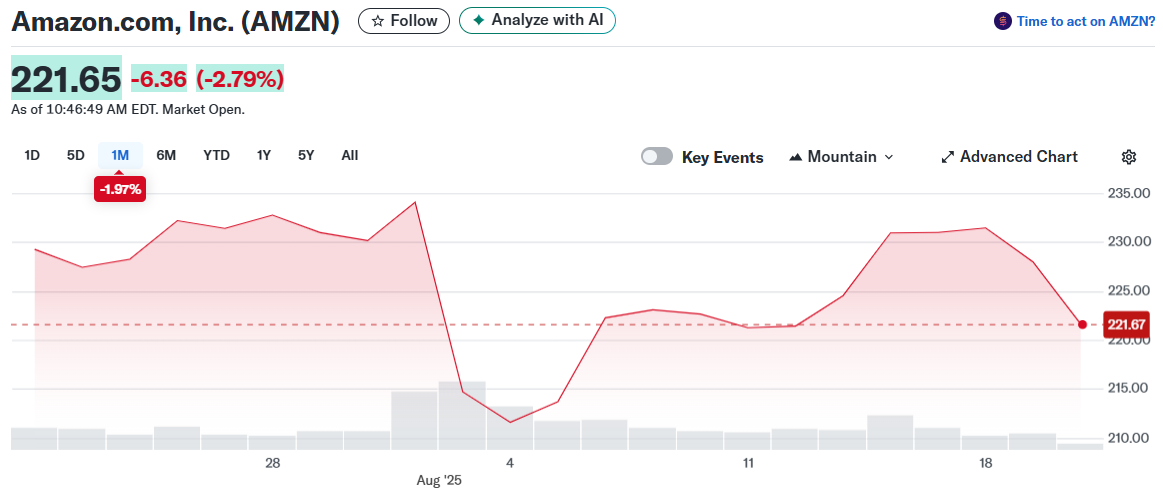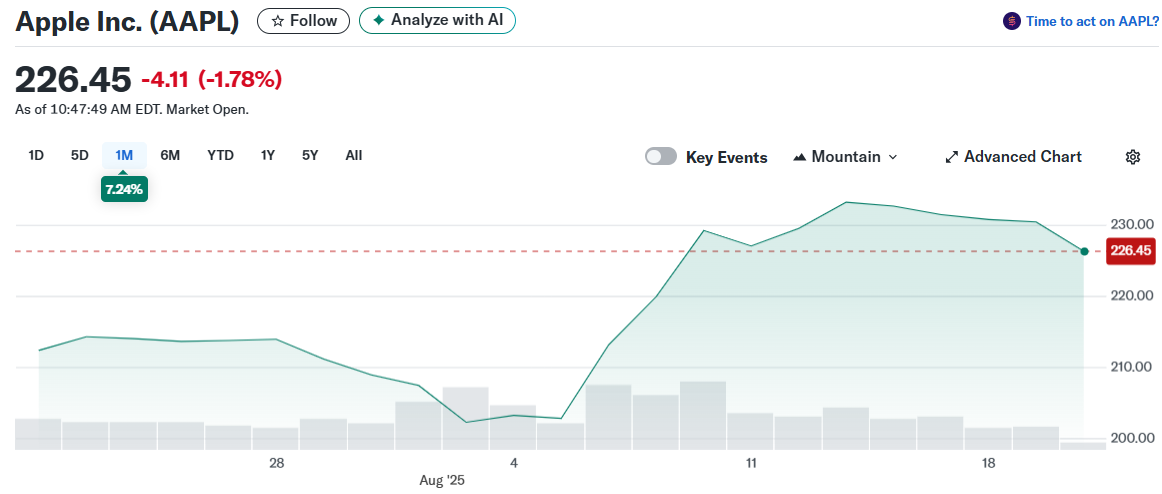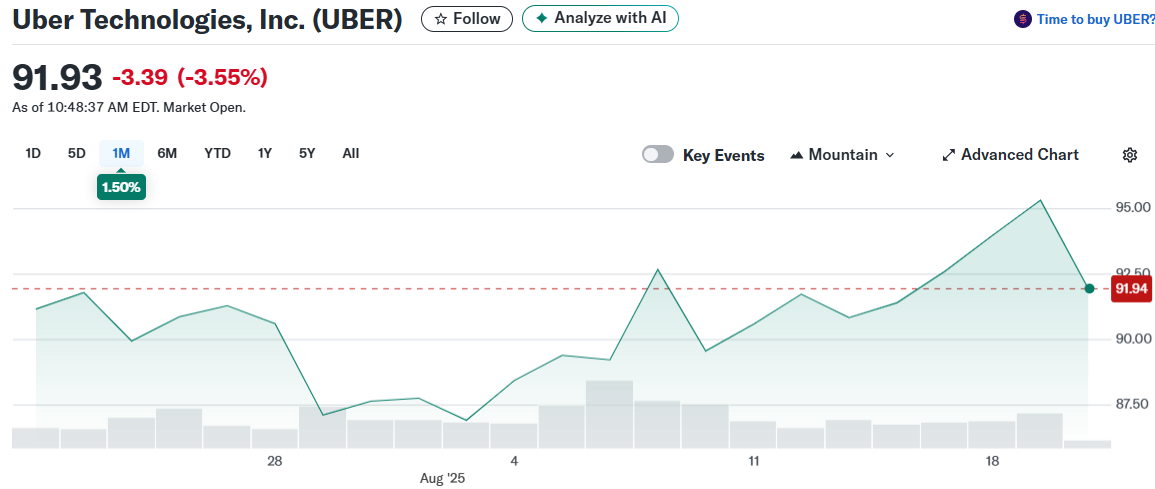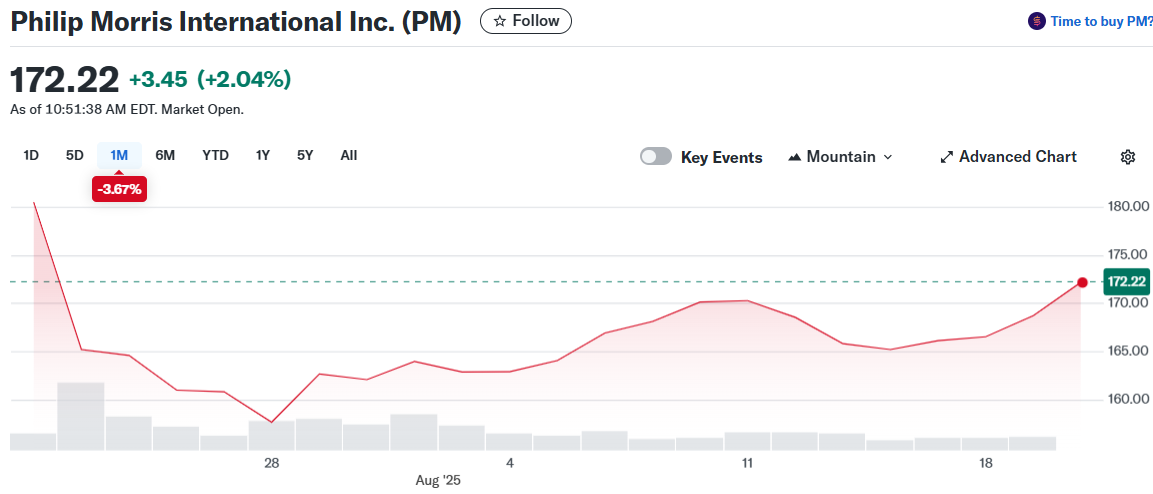TLDR
- Amazon controls 37.6% of US e-commerce market and is expanding grocery delivery to 2,300 cities by year-end
- Apple has 2.35 billion active devices globally but faces questions about its AI strategy ahead of Siri revamp next year
- Uber posted 18% trip growth in Q2 2025 and approaches $200 billion in annual bookings with 36 million Uber One subscribers
- Philip Morris International grew revenue 7.1% in Q2 2025, driven by 15.2% growth in smoke-free products like Zyn pouches
- All four companies demonstrate pricing power and market dominance that positions them for long-term growth over next 20 years
Amazon leads a group of four consumer-focused companies that analysts believe can deliver strong returns over the next two decades. The e-commerce giant continues expanding its reach while competitors Uber, Apple, and Philip Morris International each tackle their own growth challenges.

Amazon dominates the US e-commerce landscape with a 37.6% market share. The company has evolved far beyond online shopping into cloud computing, media, and advertising services.
The Seattle-based company recently launched a major expansion of its grocery delivery service. Amazon now offers same-day delivery of food products, including perishable items, across 1,000 US towns and cities.
The grocery service could reach 2,300 municipalities by the end of 2024. This expansion targets a market where e-commerce still represents less than 17% of total US retail spending.
Amazon’s stock traded at $222.08 on Tuesday, down 2.60% from the previous session. The company maintains a market capitalization of $2.4 trillion.
Apple Faces AI Development Pressure
Apple operates a global ecosystem of over 2.35 billion active devices spanning phones, computers, tablets, and accessories. The iPhone maker has built one of the world’s most recognizable brands.

However, Apple has faced criticism for its slow entry into the artificial intelligence race. Many investors expected the company to capitalize quickly on AI trends given its hardware expertise.
Apple plans to revamp its Siri technology for release next year. The update could help the company catch up in the AI landscape where competitors have gained early advantages.
The company’s sticky ecosystem may provide time to develop competitive AI features. Apple’s pricing power and share repurchase programs continue supporting steady returns for shareholders.
Uber Defends Market Position
Uber Technologies reported 18% growth in trips during the second quarter of 2025 compared to the same period last year. The ride-hailing company approaches $200 billion in annualized bookings across its transportation and delivery services.

Questions persist about Uber’s long-term prospects as autonomous vehicle competitors like Tesla’s Robotaxi and Alphabet’s Waymo expand to new markets. Some investors worry these technologies could disrupt Uber’s driver-based model.
Uber’s subscription program, Uber One, has grown to 36 million members. The company believes its scale and brand recognition provide advantages over emerging competitors.
Uber stock closed at $92.01 on Tuesday, down 3.47% for the session. The company maintains partnerships to develop its own autonomous vehicle options as hedge against future competition.
Philip Morris Pivots to Smoke-Free Growth
Philip Morris International has transformed from a traditional cigarette company into a diversified nicotine products manufacturer. The company acquired Zyn, the leading nicotine pouch brand, in early 2023.

Revenue grew 7.1% in the second quarter of 2025, driven by 15.2% growth in smoke-free products. These include electronic cigarettes, heat-not-burn tobacco devices, and oral nicotine pouches.
Traditional cigarette sales continue declining globally. Philip Morris has offset these declines by raising prices and developing alternative nicotine products.
The company’s dividend yields 3.2% at current share prices. Management has increased the payout every year since spinning off from Altria in 2008.
Philip Morris stock gained 1.84% on Tuesday as investors showed confidence in the smoke-free product strategy. The company expects continued growth from next-generation nicotine products through the remainder of 2025.






